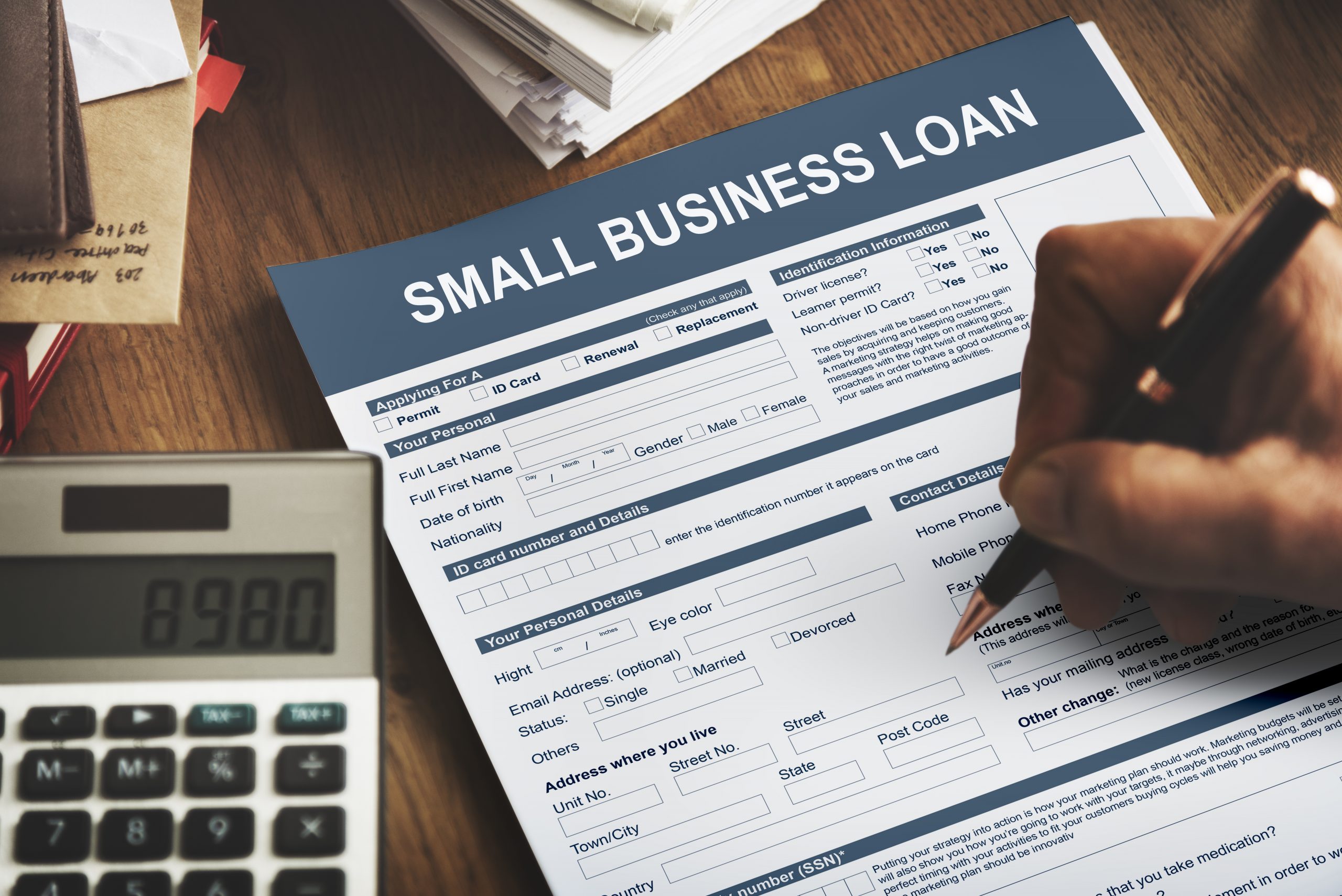Having bad credit doesn’t have to mean that you can’t have a business or even a business bank account, complete with a separate credit score for your company and the ability to potentially get lines of credit.
Before pursuing the route of getting a bank account despite your bad credit, you need to consider the reasons that you have bad credit and keep you from getting a small business loan, and whether or not a business will ultimately make your life worse.
If you’ve recovered from whatever situation led you to have a poor credit score, and you’re in a stable enough position in life to consider opening a business, then the first thing to do is make some attempt at improving your credit score.
While the methods in this guide will help you despite having a bad score, you having a better score wouldn’t hurt. So kill two birds with one stone: as you build your business and eventually find yourself with excess funds, pay off anything that’s depressing your credit score.
Moving forward. It’s possible to do a lot of types of business without having a bank account, but it’s less than ideal. Several solutions including PayPal attempt to offer as many services as they can which might traditionally be handled by banks. It’s rare anymore that you’ll be paid by check. In most cases, you’ll be handling cash or debit transactions. Something like PayPal is more useful than a bank for the latter type, and will be necessary anyway.
First, Consider Improving Your Credit
You’re about to invest in building a business, but perhaps you should first invest in yourself. People looking bank accounts for bad credit should always consider simply becoming people with good credit. This is the first, most obvious, and fastest way to securing a bank account for yourself or your business.
It’s never easy. There are a variety of credit repair services that will offer you a path, as well as legal aid when necessary, to getting your credit back on track.
Steps will include disputing some marks on your credit report and making payments on some accounts. There are also specially designed credit products, such as secured credit cards, that allow you to earn good marks on your credit score without actually risking any credit on you.
One of the easiest credit accounts to get, for yourself or your business, is a wireless provider. Keeping an account in good standing with a wireless company is another way to build your credit, especially if the account will extend you devices on credit. This is essentially the same thing as any other credit account, and can be used to establish a history of good payments.
You can pursue the other steps of this article while still doing this – it never hurts to do whatever you can to get your credit in good standing.
Business Without Banking
In case you don’t have a bank account right now, PayPal will issue you a business debit card. The drawbacks of using PayPal without a full bank account are obvious: for one thing, you can’t issue checks. You can’t deposit cash easily. You can’t withdraw cash easily. There are more ways to get a business credit card even if you do have bad credit.
There’s also the very important matter of your business transaction history, which can come in handy when trying to get a business loan with bad credit. If you properly run your business, track your expenses, and bring in plenty of income, then you’ll find your bank more willing, eventually, to extend you credit for your business. You don’t necessarily get this with PayPal, whose Working Capital product is a very different approach to lending than what most new business people might be comfortable with.
Separation of Funds
From a legal standpoint, it’s incredibly important that your new business be treated as its own independent entity. That means you can’t be commingling your personal and business funds, as much as possible, in order that you never find yourself in a state of confusion when it comes to authorities.
The best position to be in if a tax agent ever contacts you is one where you can just produce the documents they demand. It’s a great sigh of relief for any businessperson. You’ll soon find, as your business grows, that anything which puts your mind at ease is worth a time investment.
The type of business you are in will play very much into the type of records you keep. In essence, you want to be able to say where your money came from and where it went, as well as how much there was in every case. Between receipts, bank records, and invoices, you should be able to provide yourself – or those with the authority to demand it – a clear picture of what came in and for what as well as where it all went.
What Can Be Done With A Business Banking Account
Having a business banking account will help you as you expand your business. You can use the bank records to show potential investors or lenders the money you’ve brought in and your expenses.
This alone can be a powerful assistant when trying to acquire the capital to expand your business.
A business checking account shields your personal assets, as well. If someone conducts a fraud against your bank account, or for whatever reason a check bounces, your personal accounts won’t be affected.
Steps To Acquiring A Business Bank Account For Bad Credit
After you’ve properly assessed the reasons you have bad credit, determined how serious you are about getting into business, and set your heart on getting a business bank account despite your bad credit, there are some important steps to take.
Step 1: Get Your Business Legal
In the US, you have three options: an LLC, incorporation, or “doing business as.” You’ll want one of the first two to maximize the utility of a business bank account and entity.
You have options for doing this part. You can hire a lawyer, or do it yourself. You can also pay a service such as LegalZoom to do it online. Or you can track down the forms yourself at your state website and try to do the paperwork on your own.
As part of registering your business, you’ll be issued a tax identification number. This is the number you can use in place of your social security number when applying for bank accounts.
A business is just like a person in terms of credit worthiness: a new one has no credit history, and therefore no real credit, but it’s still better than the “bad” credit score you personally have. As part of founding your business, hopefully you’ve assessed your options for credit repair.
Step 2: Fill Out Applications
Now you have a legal business. From here on out, you should attempt to keep your business and personal finances separate. If possible, simply pay yourself a salary out of the business every week, that way your personal finances are clearly defined.
Most of this is in the event of an eventual audit. The more organized and properly executed your accounts, the less likely you are to get into unnecessary trouble, or have the worry of being unsure.
You should go around to banks first and gather applications, or for most banks these days you can simply fill out the applications from home. In the latter case, get a list of the banks you’re interested in using together.
Most of the banks will have a required deposit that you’ll need to be prepared to make. If applying online, the deposit functions as a refundable application fee – if your application is rejected, they return your funds.
Getting a regular checking account without a request for a line of credit will be your fastest route to success in getting a business bank account with bad credit. If you request is denied by the bank or if you are looking for a faster way to obtain a loan for bad credit, you can seek for funds from online alternative lenders.
Some banks may not require much information about you personally, other than your name as the person who has access to the account and owns the business.
Your personal creditworthiness will become more important when you eventually decide to seek some type of capital from a traditional route such as a bank loan.
Therefore, it’s important that it be reiterated again: having a business with a fresh credit history and a bank account despite your poor credit doesn’t mean you should ignore your bad credit report.
Step 3: The Credit Union Approach
Assuming all the banks you’re interested in trying deny you, another option, for both personal and business banking, is a credit union.
Credit unions operate quite differently from banks. Many credit unions don’t allow membership from outside of a certain community, such as an employer or a group of them.
You may have relationships in your personal life that give you a fast-lane to getting accounts at a credit union.
As a rule, credit unions work with less capital, so long-term you’re probably less likely to get a loan or other cash injection from the credit union. However, it gets your foot in the door – when you go to apply to the banks that have recently denied you, you can reference your good history with the credit union, and your erstwhile efforts to repair your personal credit.
Step 4: Maintaining Your Account
Now your business is almost a whole entity. It has a tax identification number, it has access to banking, it has a purpose, and it has an owner: you.
The wealth and health of your business doesn’t come to down your poor credit report. It comes down to your discipline.
If you’ve followed all of our advice so far, you know that the funds in your business account belong to the business. You can use them to expand the business, increase your salary, pay business expenses, and so on.
The second you start thinking along other lines, such as “a little here won’t hurt,” you’re putting everything you’ve worked hard to establish at risk. In hindsight, it probably won’t be worth it.
For the purpose of this article, let’s assume you do the right thing. After all, it would take a series of articles to help someone stuck on doing the wrong thing.
Diversifying Accounts
After a certain point, you’ll have enough money in your business that you’ll understand the risks of leaving it all in one place. For any given legal reason, funds in a single account can be frozen, and if this is your only account, that can shut your business down.
Once your business has grown beyond a certain point – you can operate without making a profit and survive, and so forth – you’ll want to consider broadening your banking horizons.
At this point, your business will have established such good credit that getting an account virtually anywhere won’t be a problem. Therefore, during this phase, it’s advisable to take meetings with bank representatives to discuss your business and its goals.
A good bank can be an essential partner in the growth of a business, and a good bank representative will identity the ways his or her organization can best help yours.
Depending on the size of your enterprise, you might need multiple relationships, or you might be better served at a bank where you can receive dedicated service. In either case, the richer your company becomes, the more necessary it is to employ people who keep it that way.
Business Beyond Banking
Now your business is going well. You’re expanding. Your accounts are growing. Your house is getting full of nicer things as you’ve been able to take more and more home.
Great. What now?
Simply letting money stack up in your business bank account won’t do you any good. As a business, you need to be using that money. If you’re now at this stage, you immediately need to consider the options available for the following: a part-time accountant to ensure that you keep your paperwork in order, a consultant to help you strategize for the future of your business, and a financial planner/money manager to invest for your long-term plans.
If you have bad credit today but you’re serious about starting a business and turning your life around, then you will have “good” credit by following simple steps and resolving not to become delinquent again.
The best position to be in is unknown to some: never borrowing at all. If your business is able to both operate and expand without the involvement of lenders, you’re better off, and your creditworthiness will only increase the longer you build your business’s assets that way.
In short, when done right, a bank’s refusal to extend credit gives an entrepreneur the opportunity and motivation to repair their credit histo





